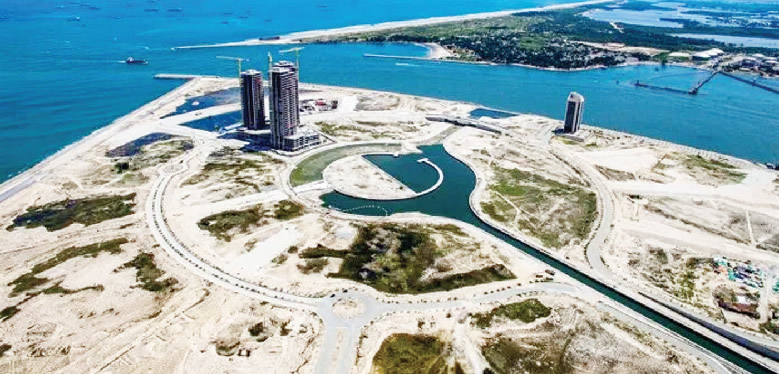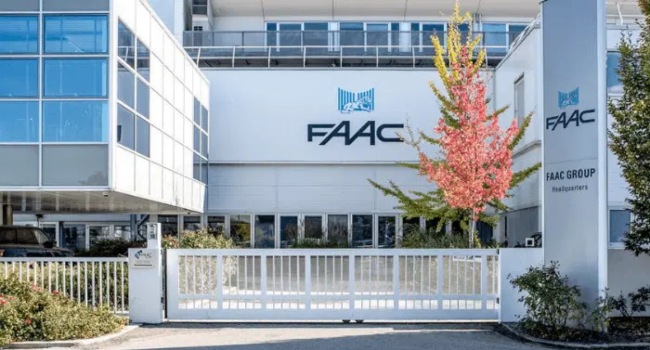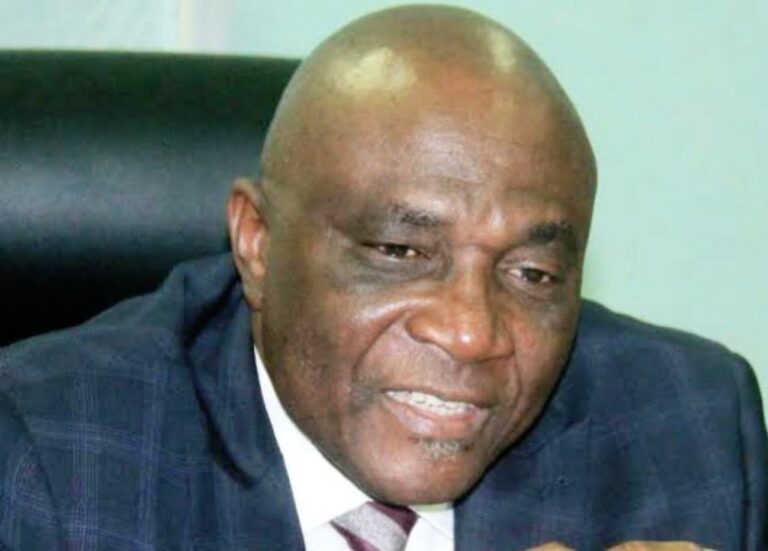
A plot of land in Eko Atlantic, which was valued at around N180m in the early 2000s, has now skyrocketed to over N2bn, highlighting the rapid appreciation of prime coastal real estate in Lagos, according to a report by the State of Lagos Housing Market, Volume 3.
The report read, ”The past decade has marked a period of profound transformation for the Lagos real estate sector, particularly within its luxury segment. What was once a market with relatively affordable land plots has rapidly matured into a highly competitive and premium investment destination, driven by a dynamic interplay of economic, demographic, and infrastructural forces.
“Over the last 10 years, the Lagos property market has undergone a dramatic shift, transitioning from a landscape and premium investment space to a highly competitive one with more accessible entry points. This evolution is most vividly illustrated by the consistent and often exponential appreciation of land prices.”
It stated that historical data unequivocally demonstrates that land values have moved in a singular direction: upward, with no significant reversals, noting that the longer an investor delays, the more expensive real estate becomes.
“A compelling illustration of this trend is observed in Ibeju-Lekki. A plot of land in this area, which was available for as low as N500,000-N1.5m in 2013 (prior to major development hubs like the Lekki Free Trade Zone), saw its value surge to N5m-N10m by 2018 as significant infrastructure projects commenced.
“By the first quarter of 2025, the same land commanded prices between N25m and N40m, representing a potential 40-fold increase in value over a decade. Similarly, plots in Lekki Phase 1 that were priced at N10m – N15m in 2005 are now valued at over N400m – N500m. Land prices in Eko Atlantic, which stood at N180m per plot in the early 2000s, have also escalated to over N2bn today.
“This extraordinary appreciation underscores that real estate in Lagos has become a primary vehicle for wealth accumulation. The market’s dynamism is driven less by a pure housing need for the general populace and more by its function as a high-yield investment vehicle for the affluent, including a significant proportion of diaspora investors. This establishes luxury real estate as a critical mechanism for wealth generation and preservation in Lagos, particularly for those with patient capital and a long-term investment horizon.”
On the key drivers of market appreciation and growth, the report stated that the remarkable appreciation and growth in the Lagos luxury real estate market over the last decade can be attributed to several interconnected factors:
“Urbanisation and population growth: Lagos’s population has rapidly expanded, reaching nearly 24 million residents, with an annual growth rate of 2.5 per cent. The city experiences an influx of over 6,000 immigrants daily, with approximately 50 per cent choosing to remain, significantly intensifying the demand for housing across all sets, including luxury. The population is projected to exceed 25 million by 2025, further fuelling this demand.
“Despite the broader infrastructural challenges, individual luxury properties in Lagos are equipped with world-class features and amenities designed to meet international standards. These developments aim to create a self-contained, elevated living experience for their affluent residents.”
Modern Nigerian luxury properties increasingly incorporate state-of-the-art home automation and smart home technology. Private amenities such as in-house gyms and swimming pools are common, with ultra-exclusive communities like Banana Island even featuring private helipads and golf courses.
Other premium offerings include infinity pools, 24/7 concierge services, private lounges, and wellness centres. Opulent interior designs often feature dedicated home offices and entertainment lounges, including game rooms, cinemas, and bars. High-quality finishes are standard, encompassing Spanish tiles, security doors, imported sanitary wares, glazed windows, and premium electrical fittings.
The report further stated, “Architectural styles within the luxury segment are diverse, ranging from sleek, modern minimalist designs characterised by clean lines, open spaces, and large windows that seamlessly blend indoor and outdoor living, to more traditional styles that incorporate intricate woodwork and local materials, reflecting Nigeria’s rich cultural heritage.
“Beyond the physical attributes, exclusivity and prestige are central to the definition of luxury housing in Lagos. Affluent estates like Banana Island, Ikoyi, Lekki Phase 1, and Victoria Island are widely regarded as symbols of wealth, prestige, and modern urban living. Residing in these areas signifies social success and positions individuals among West Africa’s elite.
“Location-specific advantages further enhance this appeal; for instance, residents in Banana Island and Victoria Island enjoy waterfront views, upscale malls, fine dining establishments, and close proximity to business hubs, aligning with international luxury buyer expectations.”
The State of Lagos Housing Market, 3rd Edition, is published by the Roland Igbinoba Real Foundation for Housing and Urban Development. The first and second editions were published in 2009 and 2016, respectively.
(PUNCH)


